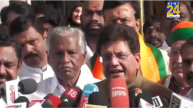Zomato’s CEO, Deepinder Goyal, recently faced backlash after introducing a “veg mode enablement fee” of INR 2 for vegetarian meal orders. The issue came to light when a LinkedIn user, Rohit Ranjan, expressed frustration over this extra charge, stating that being vegetarian in India felt like a “curse” due to such fees. He criticized Zomato for making vegetarian options seem like a “luxury tax” instead of a standard choice.
In response to the criticism, Goyal publicly apologized, admitting that it was “stupid” for the company to implement such a fee. He assured customers that the charge would be removed immediately and promised to address the internal issues that led to this decision. Goyal emphasized the importance of ensuring that similar mistakes do not happen again in the future.
The introduction of the veg mode and its associated fee sparked widespread discussion on social media. Many users reacted with humor and sarcasm, highlighting concerns about how such charges could alienate vegetarian customers. Some even joked about Zomato learning from other companies that impose various taxes.
This incident is not isolated; it follows previous controversies regarding Zomato’s attempts to create a “pure veg fleet” specifically for vegetarian deliveries. That initiative was also rolled back after significant public outcry over potential discrimination against non-vegetarian delivery personnel and concerns about community backlash.
Goyal’s quick acknowledgment of the issue and his commitment to rectify it reflects the growing sensitivity around dietary preferences in India, where vegetarianism is prevalent but often faces societal challenges. As Zomato continues to navigate these complexities, it remains essential for the company to listen to customer feedback and adapt its strategies accordingly.













